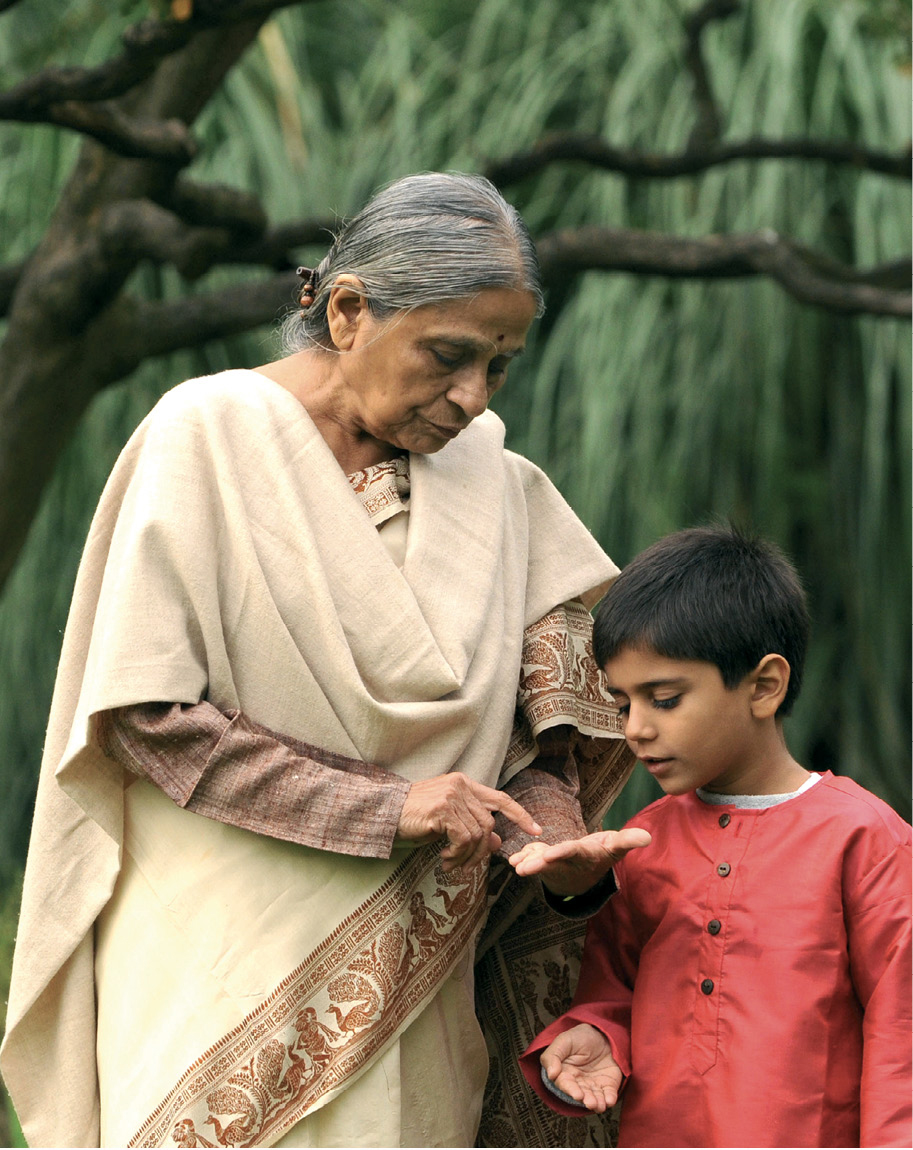Ela Bhatt

Hillary
On my first trip to India in 1995, I met one of the twentieth century’s most effective political and labor organizers, Ela Ramesh Bhatt. Following Gandhi’s example, she founded the Self Employed Women’s Association (SEWA) in 1971.
Both a trade union and a women’s movement, SEWA had more than 140,000 members when I visited, including some of the poorest, least educated, and most shunned women in India. It has now grown to more than one million members. Many of the SEWA members had entered into arranged marriages and then lived in their husbands’ households under the watchful eyes of their mothers-in-law. Some had lived in purdah—the enforced isolation within their own homes that is applied to certain Hindu and Muslim women in South Asia—until their husbands died, were disabled, or left, and they had to support their families; all struggled day-to-day to survive. SEWA offered small loans to enable them to earn their own income and also provided basic literacy and business education training. When I visited SEWA headquarters in Ahmedabad, Ela showed me the large books kept in SEWA’s one-room office that recorded the loans and repayments. Through this system of microfinance, SEWA was providing employment for thousands of individual women and changing deeply held attitudes about women’s roles.
Ela received a bachelor of arts in English and a law degree and then joined the legal department of the Textile Labour Association, where she headed its women’s wing. Thousands of women worked in the textile industry, but most were self-employed at home rather than working in factories, so the labor laws did not apply to them. Ela decided to organize them and to seek better working conditions and income for them. She encountered stiff opposition from businesses and governments but kept pressing her mission and became known as the “gentle revolutionary.”
Ela, a practitioner of Gandhian nonviolence, stresses the centrality of the peaceful struggle against injustice. When I was secretary of state, I proudly gave her the Global Fairness Initiative’s Fairness Award for helping more than one million poor women in India to greater dignity, independence, and self-sufficiency. I have often referred to her as one of my personal heroes because of her life’s example and SEWA’s achievements. I have stayed in touch with Ela and her successors over the years, and I visit SEWA members and stores when I go to India. But the memory of that first visit is indelible.
Word of my visit had spread through the nearby villages in Gujarat, and nearly one thousand women flocked to the meeting, some of them walking nine or ten hours along hot, dusty paths through the countryside. Tears filled my eyes when I saw them waiting for me under a large tent. Fanning themselves in their sapphire-, emerald-, and ruby-colored saris, they looked like an undulating human rainbow. They were Muslim and Hindu, including untouchables, the lowest Hindu caste. There were kite makers, scrap pickers, and vegetable vendors. While I sat in front, Chelsea sat down among the women in the audience.
One by one, women stood up to share how SEWA had changed their lives, not only because of the small loans they’d received and the help SEWA had given them in their businesses, but also because of the solidarity they felt with other struggling women. One woman struck a common chord when she explained that she was no longer afraid of her mother-in-law. In the culture many of the SEWA women shared, the mother-in-law typically exerts rigid control over her son’s wife as soon as the couple marry and move in with his family. Having her own market stall and her own income gave this woman welcome independence. She added that she was no longer afraid of the police, either, because a group of SEWA-sponsored vendors now protected her from harassment by overbearing officers in the market. The dignified bearing, chiseled faces, and kohl-rimmed eyes of the speakers belied their difficult lives.
“A woman who tends a small plot of land, grows vegetables, weaves cloth, and provides for the family and the market, while caring for the financial, social, educational and emotional needs of her family is a multifunctional worker and the builder of a stable society.”
—ELA BHATT
Finally, I was asked to make closing remarks. After I finished, Ela took the microphone and announced that the women wanted to express their gratitude for my visit from America. In a stunning flash of moving color, they all sprang to their feet and began singing “We Shall Overcome” in Gujarati. In that moment, the thread connecting Gandhi’s principles of nonviolence to the American civil rights movement came full circle, back to India. I was overwhelmed and uplifted to be in the midst of women who were working to overcome their own hardships as well as centuries of oppression. For me, they and Ela were a living affirmation of the importance of women’s rights.